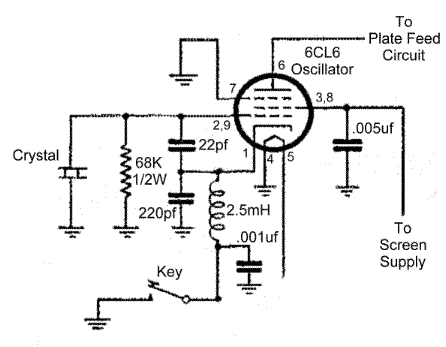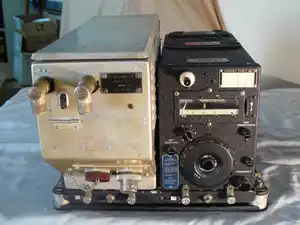Education Trickles Down
How my father's education bootstrapped my lifelong career.
by Ed Sawicki

Many WWII veterans took advantage of educational opportunities provided by the Roosevelt Administration's GI Bill. It was a very successful program and contributed to the rise of the middle class. A few companies sprang up to provide that education to working veterans via correspondence courses. These were courses that delivered lessons to students via the U.S. Mail.
Recently, I was reading a story in which a WWII veteran mentioned taking a correspondence course in radio and electronics from National Schools after the war. I paused. I remembered those courses. My father had taken one of those courses sometime after the war. I suddenly remembered a part of my early education that I had forgotten about.
In the late 1950s, I ran into a stack of large brown envelopes in a dining room cabinet. I opened them to find lessons that included drawings and schematic diagrams of various radio and electronics circuitry. When my father took the course, he had to take the lessons in order. Each lesson was mailed to him according to a schedule. Now, I had the whole course. I was able to pore over all the lessons and pick the topics that most intrigued me.
Learning wasn't enough—I wanted to build some of the things I was learning about. Thus began my shopping sprees to the local electronics supply houses for needed items. I bought magazines like Popular Electronics and scoured the advertisements in the back for good deals on mail order parts (100 quarter-watt resistors for 99 cents). To support my habit, I began repairing radios and TV sets for family and neighbors.
When I was older, my geek friends and I would take a bus to a government surplus store and come back with, for example, receivers and transmitters that were removed from WWII B-17 and B-29 bombers. I owned equipment that were likely flown over Europe and Nazi Germany—or Japan. Afterward, my trips to the library included learning more about geography and the military.

I attended a technical high school named Sewanhaka and enrolled in a program that taught electricity and electronics. I had good teachers but they mostly taught older technology that involved vacuum tubes. At home after school, I was experimenting with transistors. One of my teachers (Mr. Koral, I think) had been a mechanical designer before teaching. After class, I'd ask him questions about hardware design and he'd ask me about transistors.
My teacher exposed me to the Thomas Register—a massive catalog of mechanical parts from which designers choose. Months later, when I applied for a summer job at a company that manufactured parts for the military, the recruiter was surprised that a teenager knew about the Thomas Register. I got the job.
After high school, I attended RCA Institute in New York City. About ten years later, I was teaching computer technology classes.
That's how I got into radio and electronics as a pre-teen. I had my father, World War II, Franklin Roosevelt, and the U.S. government to thank for my affordable education (no student loans) that led to my life's occupation of teaching others. Education trickles down.